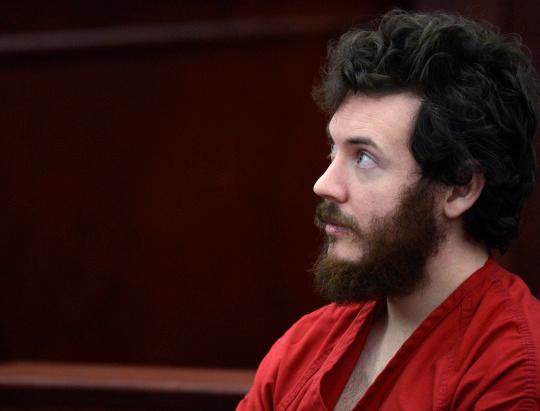Thank you for your heartfelt but very logical post!Spiritwind wrote:I find this topic of considerable interest for several reasons. One of them is personal. I have a good friend who finally, in frustration, took her now ex-husbands gaming equipment and broke it all beyond repair. She wanted him back and figured that was the only way to finally get his attention. My oldest son is quite into them. A number of years ago he was supposed to be working for me and couldn't seem to tear himself away. Since he happened to be using our internet with a booster next door, I smiled to myself and figured out how to get his attention. I simply unplugged the power to the Internet. He was over in minutes. But it seems ridiculous to me that we have to resort to such tactics. It's quite obvious it's addictive.
Although, in my sons defense, he is steadily maturing and becoming a better person, despite his continued interest in playing. He is now a father of two and has really risen to the occasion. We've also had many discussions where he has shared why it is important to him and in what ways he feels he has benefitted. It seems maybe it is a quite complex issue.
This headline got my attention in one of your posts:
Video Game Addiction Leads Not Only to Loss of Sanity But Also to Loss of Motor Skills
The reason is, I know a young man who I briefly worked with recently that was attending college. He told me during a discussion one night that he was writing a paper on how playing video games increases your motor skills.
My biggest argument against them has to do with how I use my time and energy, how we all use our time and energy. My feeling is, the world is careening ever closer to a future that isn't what I want to be part of. So I choose what I focus on very carefully. To me, playing violent video games in any kind of obsessive way, is putting energy into something that is the opposite of life affirming. To me, especially during a crisis (which in reality the world is in), playing any kind of games is escapist behavior that keeps us from collectively coming up with a better future for all life here.
I absolutely do feel their design is all part of the programmers nefarious agenda, and I would not doubt at all that it played a part in what happened to Holmes. People do seem to miss the deeper implications, don't they?
What a terrible situation for your friends who lost their marriage. Thanks for telling me about this,
because believe or not, *many* people have marriages troubled by games of technological "keep away", invasion of privacy,
and sadly, acts of anger carried out on the otherwise innocent machines who serve human need.
My big wake up call to the idea of gaming addiction did not happen when I started playing Dungeons and Dragons through forums,
sadly; I met some shady people that way who were more interested in meeting women than playing the game.
However, in the military, I rented a room in a townhouse from some friends who were dating each other.
I had a nice laptop, and although I spent a lot of time playing around on that thing, it wasn't long before I noticed my friend playing World of Warcraft.
Now, my friend/coworker was very handsome. He was super smart. He had no reason to withdraw from society.
In fact he was so handsome/intelligent/volatile that I was afraid to even consider him in terms of dating potential.
Perhaps something genetic said "this combination is too strong".
His girl friend was a beautiful mixed race woman who worked in supply.
She had been an airline stewardess and seemed very gracious, self aware, conscious to the comfort and appearance of others, etc.
She had to maintain friends in circles that did not necessarily agree with each other (black and white),
so that might have been one reason why my coworker withdrew into WoW.
While watching him neglect his girlfriend, I googled "game addiction" and eventually found a website called "Gamer Widow".
Gamer Widow forum has been featured in many news articles, and it started as a place originally where women gathered and talked about how video games and MMORPGS/shooters had completely destroyed their relationships with men. Soon, however, the site became full of people, both male and female, and of course parents/children of addicts -- their stories can't be denied, and yet the corporations do deny that their products cause damage to humans.
If the same thing was done to an animal, i.e. subject it to a Virtual Reality world that was druglike enough that the animal neglected its physical needs and became psychotic, well, PETA and everyone like that would get involved and that sort of thing would stop happening...
I suspect it's happening on the clandestine level, under high security, but the sad truth is that thanks to protections and immunities enjoyed by telecom corporations and the gaming industry in the USA, there are no protections for humans who encounter harmful technology that may or may not be experimental or otherwise breaking their constitutional rights, or even more importantly, eroding their identity and capacity to function as a human being.
That said, being a direct witness to the destroyed relationship of my friend/coworkers, I was not able to avoid becoming addicted to the product myself. I can't blame the corporation for things that have happened in my life, for choices I have made; however, I can help the public understand how exposure to these products changes the brain chemically and also contributes to a loss of empathy in human beings.
In the same way that a bottle fed animal or infant experiences the absence of its mother,
a human or animal who is fed a virtual environment will experience the absence of mother earth, or the Gaia soul,
in which I do believe (I don't think the idea of an earth soul conflicts with the idea of a Creator).
The Motor Skills article was harder to find.
I had to use the testimony also provided by the Holmes family (his parents), where they said he really suffered physically and mentally when he favored the video games over sports.
It takes only about 25 minutes per day of a stimulating motor activity (driving a manual car, playing soccer, piano, etc) to keep this part of the brain healthy.
However sadly in some cases no one is enforcing the healthy schedule needed in order to maintain the normal order of synaptic function in the human brain. And because the government has not had the chance to look closely at this issue before it spiraled out of control, and of course we have corporate espionage, lobbying, all that kind of thing, we don't have the normal controls in place as in other industries with the potential to affect the health of humans,
like fire codes, nutritional labels, things of that nature --
the region of virtual reality is almost as unmapped in public view as are issues like vaccine damage and corporate oligarchy.
The tip of the iceberg isn't always visible officially but there should be a stir in the social world, where human beings aware of these issues are, similarly to us, discussing them with candor.
It's not easy to get testimony such as what Holmes' mother provided, and of course the corporations would dismiss it in court as "anecdotal".
Because parents are for whatever reason not legally qualified to judge the health of their children, although somehow the court nails them for being responsible for said health -
it's a very strange conundrum, and I do hope our country looks closer at how the internet and perhaps more importantly, how repetitive violence and loss of human contact associated with video games is harming our society.
It's truly not something that can be blamed on race, income, or place of birth.
Game addiction has struck people in all walks of life -- we tend to hear more about the cases where poorer people without a private place to play,
such as in South Korea, resort to public internet cafes and the like, but we have people also like James Holmes,
who were described by their teachers as "Renaissance Children" but descended nonetheless into madness.
Activities that formerly provided relief to such people are discarded in favor of the addiction,
which is in fact worsening the underlying condition/break with reality,
and the manufacturers are denying all of this.
Bless you!



